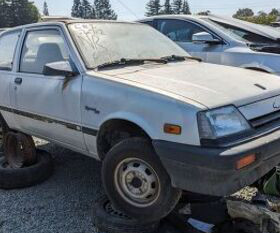Junkyard Find: 1987 Chevrolet Sprint ER
The Truth About Cars
OCTOBER 30, 2023
What was the most fuel-efficient (mass-produced, internal combustion-powered, highway-legal, non-gray-market, four-wheeled, et freakin' cetera) new car available in the United States during the 1980s? If you want to be picky, the 198 6 Sprint ER was the gas-mileage king of 1980s America, rated at 44 city and 53 highway miles per gallon.










Let's personalize your content